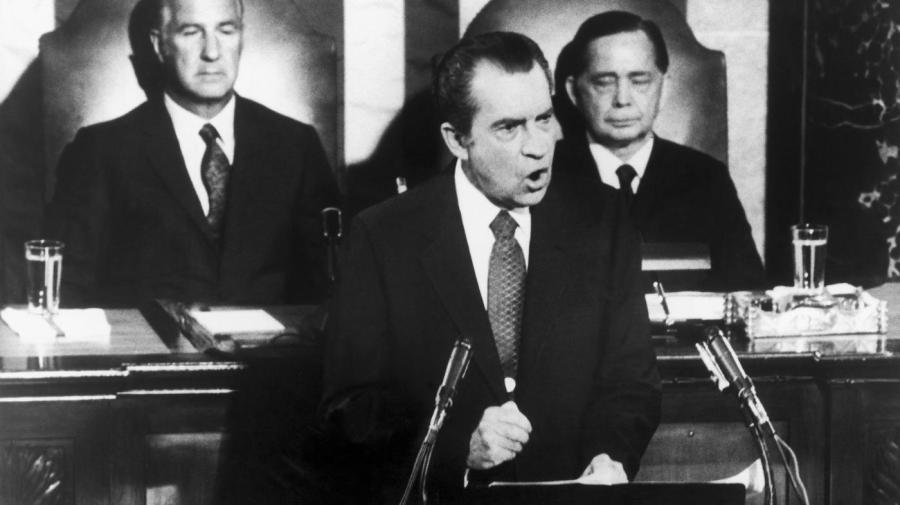Nebraska Press Association V. Stuart
What Was the Bear upon of United states Five. Nixon?

The example United States v. Nixon was a landmark court case because it firmly established that the president of the Us could not use executive privilege as an absolute defense against judicial inquiry. The case occurred during the Watergate scandal, and after several tapes were subpoenaed, Nixon claimed the dispute lay entirely within the executive branch. The Supreme Court disagreed, and Nixon resigned a few weeks later.
The division of power in the U.South. regime has always been a contentious event, with the judicial, legislative and executive branches often disagreeing over limits on their particular powers. An early example of this disagreement occurred in 1796 when the House of Representatives demanded documents relating to the Jay Treaty that the Senate signed with Nifty United kingdom of great britain and northern ireland. President Washington refused to hand over those documents, arguing that the power to make treaties lay entirely with the Senate, and the House had no right to the requested information.
Nixon attempted a similar argument in challenge his ain executive privilege. The requested recordings contained details that were relevant to prosecutions in the Watergate scandal, but the president argued that the data was not vital to the defendants' cases and he had the privilege of protecting internal White Business firm communications. The Court ruled that accepting this privilege would corporeality to a blanket immunity from judicial review and prosecution and ruled confronting Nixon unanimously.
Nebraska Press Association V. Stuart,
Source: https://www.reference.com/history/impact-united-states-v-nixon-64cb0daaf8db802b?utm_content=params%3Ao%3D740005%26ad%3DdirN%26qo%3DserpIndex&ueid=4790d0b8-6d10-4ce6-b30a-6be4d9d9c83d
Posted by: kuhnamin1981.blogspot.com


0 Response to "Nebraska Press Association V. Stuart"
Post a Comment